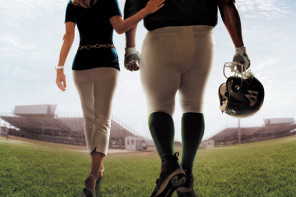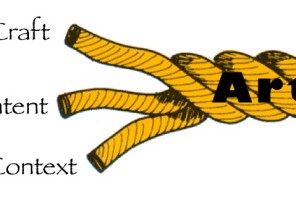[Spoiler Alert: If you keep reading this, you will learn how the movie ends!]
The literary terms ‘protagonist’ and ‘antagonist’ are common enough. The ‘protagonist’ is the main character of a play, film, or story. The ‘antagonist’ is the one who opposes the protagonist: he, she or it is a source of frustration, conflict, and tension. Less common is the related word ‘protagonism.’ A concise definition of protagonism could be: ‘an active support of an idea or cause; especially the act of pleading or arguing for something.’ Placing the words ‘protagonism’ and ‘protagonist’ side by side is suggestive. The protagonist is the one in the story toward whom the reader lends support and encouragement. We want Frodo to throw the ring into Mount Doom, and an adept author like Tolkein is able to direct and develop our sympathies for Frodo and his fellowship. But what happens when our protagonism turn us into antagonists?
The Boy in the Striped Pajamas (Mark Herman, 2008) is one of those movies that makes evil disturbingly palpable. The protagonist is a young boy, Bruno, whose father administers a Nazi concentration camp. Their family moves to a house not far from the camp. Naturally, the boy is curious about the camp and the people there. And his parents’attempts to keep him confined to their house (or, better, prison) only manages to fuel his fascination with what is going on in the ‘outside world.’
Bruno is a light in the midst of a very dark story set in one of the more disturbing episodes of world history. Throughout the film, his vibrant and carefree spirit drew me in as I gradually, seemingly naturally, became his advocate. When his parents discourage Bruno’s inquisitiveness, restrict his imaginative play, and refuse to let him play in the forested area around their home, I am forced to choose sides. How can I not cheer for the winsome Bruno?
When Bruno found a way to escape from the house, I could not help but feel a thrill of excitement and hope. Now, the stifling fear can really be left behind. And when he finds the concentration camp and meets Schmuel, a young Jewish boy his age (the only boy his age that he can call a friend), how could I not want him to bring food to the famished Schmuel? How could I not want Bruno to play with Schmuel through that terrible barbed-wire fence? What was I thinking? Am I some sort of well-intentioned Judas?
On the day that Bruno came with a shovel and a sandwich, and he offered to help Schmuel find his father (whom he had not seen for days), I wondered if something unspeakable were about to happen. And yet, I cheered when Bruno put on the striped uniform, and I cheered when he slipped under the fence. I could not help it because, I thought, here is an image of reconciliation and here is hope that injustice will not continue forever. I could not help it, but the moment he was on the other side, I regretted it. The boys ran through the camp, and searched in several huts, but they were soon caught up in a forced march. They marched into a room where they were forced to take off their clothes. They marched into a another room where they were pushed even closer together. Then, the soldiers shut the large metal door. I regretted that I ever wanted Bruno to be friends with Schmuel, let alone crawl under the fence, but I had wanted that. Even though it was Bruno who wanted to help Schmuel, it still feels as though I handed him over to that horrible place. I cheered him to his death.





When I saw that movie, and heard the bodies drop, I couldn’t stop repeating, “Oh, God” until about 10 minutes after the movie ended, and was in a funk for quite a while after.
I haven’t read the book, but I understand that in the book, Bruno’s death causes his father to repent and accept his responsibility for his son’s death. The main part of the book ends with, “…Despite the chaos that followed, Bruno found that he was still holding Shmuel’s hand in his own and nothing in the world would have persuaded him to let go.”
We cheer the love that conquers fear in Bruno. In this fallen world, that love gets the lover killed. But if that death leads to repentance, can we not still – in a way – cheer the love that led to it?
The film helps us understand that true selfless love can get us literally killed, destroyed, annihilated. The challenge is, will we still love anyway? Or give in to despair and horror?
It’s a terrifying film.